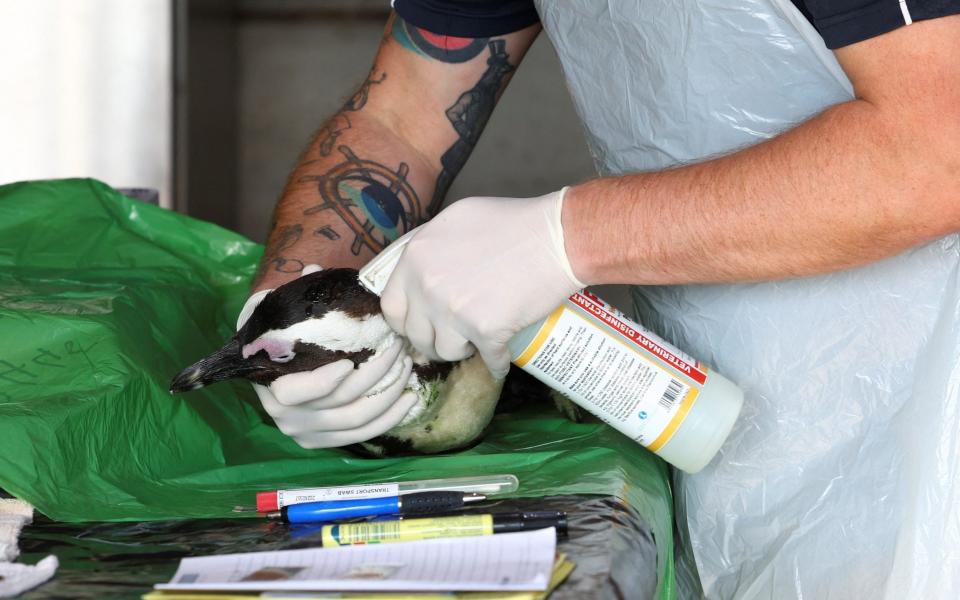Bird flu kills almost 30 endangered penguins as cases surge globally

Nearly 30 endangered African penguins have died of bird-flu in the past six weeks at a famed breeding site in South Africa, amid a major surge in avian influenza worldwide.
Twenty-eight of the seabirds have “either died or caught the disease and needed to be put down because of it” according to Dr David Roberts, a vet from the Southern African Foundation for the Conservation of Coastal Birds.
The virus was first discovered at the 3,000-strong Boulders Beach colony, around 12 miles south of Cape Town, in May and could add to pressure on the dwindling birds, he told AFP.
The outbreak came as European scientists warned that cases of bird flu had reached record levels across the continent, following a bumper year of global infections in 2021.
The surge in cases of a virus that has repeatedly been able to jump into humans has prompted warnings a rise in human infections could follow.


African penguins are already listed on the International Union for Conservation of Nature's red list, meaning they face a high risk of extinction.
Dr Roberts said: “They are facing other stress ranging from a lack of food to habitat destruction and a collapse of the ocean eco-system...and in those cases we are worried that a disease could just push them over the edge”.
This year has seen an “unprecedented” season of bird flu, which has killed millions of wild birds and poultry across the globe and is now seeping into a broad array of other species, including dolphins, seals and foxes.
Unprecedented spread
According to data from the European Food Safety Authority and the European Centre for Disease Prevention and Control (ECDC), thousands of outbreaks of highly pathogenic avian influenza have been recorded across the continent in the biggest wave ever reported.
Figures so far show 2,467 outbreaks in poultry, leading to 48 million birds being culled. There have also been 187 detections in captive birds, and 3,573 detections in wild birds. The unprecedented spread of the flu, from the Svalbard islands to South Portugal and east to Ukraine, covers 37 European countries.
Few cases have been reported in humans in Europe – although a duck keeper in Devon called Alan Gosling was diagnosed with avian influenza in January.

“Several groups of people, mainly those working in the animal sector, are at increased risk of exposure to infected animals,” said Andrea Ammon, ECDC director.
Dr John McCauley, director of the Worldwide Influenza Centre at the Francis Crick Institute, told the Telegraph the “huge activity in western Europe and North America in 2022” may increase the opportunities for the virus to evolve or spread more efficiently in people.
“It does not seem to be going away,” he said. “Assessing the risk to humans is not easy. On the one hand, there have been few cases of human infection, and some of these might have been that the person was not actually actively infected but rather had virus ‘contamination’ by dust or feathers from infected birds.
“On the other hand, there are likely to be many more exposures due to the increase in contacts.”
Protect yourself and your family by learning more about Global Health Security

 Yahoo Movies
Yahoo Movies 
